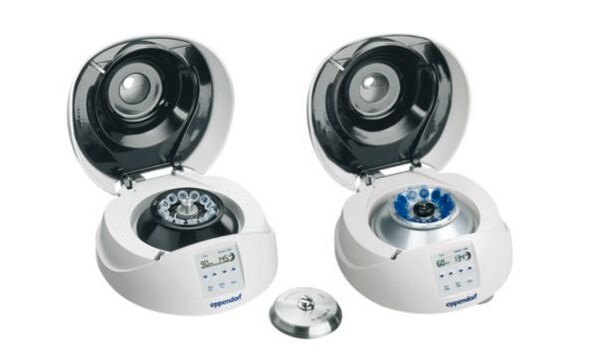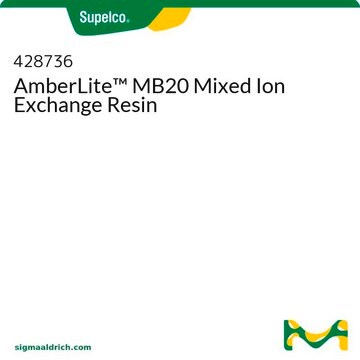54809
Mono P® 5/50 GL
10 μm particle size, L × I.D. 5 cm × 5 mm
Synonym(s):
Amersham Biosciences Ion Exchange Columns
Sign Into View Organizational & Contract Pricing
All Photos(1)
About This Item
UNSPSC Code:
23151817
NACRES:
NA.56
Recommended Products
L × I.D.
5 cm × 5 mm
matrix
MonoBeads
matrix active group
amphoteric
particle size
10 μm
compatibility
mode of use ion exchange
Looking for similar products? Visit Product Comparison Guide
General description
Mono columns are highly efficient, pH-stable columns designed for high performance ion exchange separations of proteins, peptides, and polynucleotides. The unique properties of these columns are based on MonoBeads support, a beaded hydrophilic material with the narrowest particle size distribution of any chromatographic support. This monodispersity permits high flow rates at relatively low backpressures.
Application
Mono columns are used in peptide mapping and monoclonal antibody purification. Mono P columns have been used to purify homogenous forms of fungal peroxygenase and to investigate separation of DNA restriction fragments.
Legal Information
Mono P is a registered trademark of Cytiva
Choose from one of the most recent versions:
Certificates of Analysis (COA)
Lot/Batch Number
Sorry, we don't have COAs for this product available online at this time.
If you need assistance, please contact Customer Support.
Already Own This Product?
Find documentation for the products that you have recently purchased in the Document Library.
E Westman et al.
Analytical biochemistry, 166(1), 158-171 (1987-10-01)
Separation of DNA restriction fragments by FPLC ion-exchange chromatography on Mono Q and Mono P columns was investigated. The columns were found to be particularly suitable for the separation of fragments up to 500-600 bp long. Larger fragments can also
René Ullrich et al.
Biotechnology journal, 4(11), 1619-1626 (2009-07-09)
Extracellular peroxygenase from the agaric fungus Agrocybe aegerita is a versatile biocatalyst that oxygenates various substrates by means of hydrogen peroxide. The enzyme is routinely produced in suspensions of soybean meal and has until now been purified by several steps
Our team of scientists has experience in all areas of research including Life Science, Material Science, Chemical Synthesis, Chromatography, Analytical and many others.
Contact Technical Service








